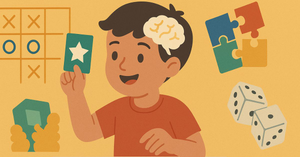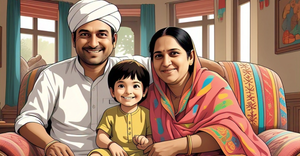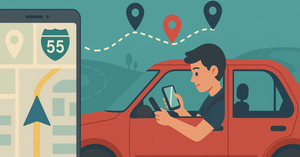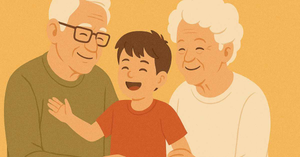Every day, thousands of people step out onto the roads—mothers taking their kids to school, grandparents heading to the doctor, workers commuting to their jobs. Each of them trusts that everyone else on the road will act responsibly. But what happens when that trust is broken by an underage teen driver who doesn’t have the skills or maturity to handle a vehicle safely? The consequences can be devastating, and sadly, this is not just a hypothetical scenario. It’s happening every single day.
The Reality of Underage Driving
Let’s face it—underage driving has become a common sight outside schools and in neighborhoods. Teens, some as young as 14 or 15, are riding bikes or driving cars without licenses, often with their parents’ knowledge. It might seem harmless at first—“It’s just a short ride to school,” or “They’re careful, what could go wrong?” But the truth is, a lot can go wrong.
In India alone, minors caused 11,890 road accidents in 2023 and 2024—that’s an average of 16 accidents every single day. Tamil Nadu topped the list with nearly three accidents per day caused by underage drivers. And these aren’t just numbers; they represent real lives lost or forever changed because someone thought it was okay to break the rules.
It’s Not Just Your Life at Risk
Teens often think they’re invincible. They believe nothing bad will happen to them and that they can handle anything. But driving isn’t just about them—it’s about everyone else on the road, too. When an underage driver makes a mistake, they don’t just risk their own life; they risk the lives of innocent people.
Imagine this: A mother is driving her child to school when an underage driver runs a red light and crashes into their car. That child could be seriously injured—or worse. Or think about an elderly couple crossing the street who gets hit because a young driver was speeding and couldn’t stop in time. These people didn’t deserve this; they were simply going about their day.
When you drive without a license or proper training, you’re gambling not just with your life but with everyone else’s, too. And that’s not fair.
Why Are These Rules in Place?
The legal driving age exists for a reason—it’s not just some random number someone decided on. It’s based on research that shows when people are mature enough to handle the responsibility of driving. Driving isn’t easy; it requires focus, quick decision-making, and emotional control—all things that many teens are still developing.
Underage drivers often lack experience and judgment. They’re more likely to speed, get distracted by their phones or friends, and panic in tough situations. That’s why underage driving is prohibited—it saves lives.
Parents: Your Role is Crucial
Parents play a huge role in this issue. If you’re letting your child drive before they’re legally allowed to, you’re putting them—and others—in danger. It might seem convenient to let them ride a bike or drive themselves to school but think about the risks involved.
It’s your responsibility to teach your kids why these rules exist and why it’s important to follow them. Talk to them about the consequences of reckless behavior—not just for themselves but for others, too. Share real-life stories of accidents caused by underage drivers so they understand how serious this issue is.
And don’t just talk—take action. Don’t let your child drive until they’ve reached the legal age and completed proper training. If necessary, work with schools or local authorities to enforce this rule.
For Teens: Think Before You Act
If you’re a teen reading this, think about something: What if your actions hurt someone else? What if you caused an accident that injured a child or took someone’s life? Could you live with that guilt?
Driving isn’t a game—it’s a huge responsibility. When you drive without a license or proper training, you’re putting yourself and others at risk. You might think nothing bad will happen, but accidents happen when you least expect them.
Instead of breaking the rules, focus on learning how to drive safely when the time comes. Respect the laws—they’re there for your safety and everyone else’s, too.
For Everyone Else: Stay Safe on the Roads
Even if you’re not driving, you can still be affected by others’ mistakes on the road. Here are some tips to stay safe:
- Always stay alert when walking or cycling near roads.
- Use pedestrian crossings and follow traffic signals.
- Teach kids to stay on sidewalks and avoid distractions like phones while near traffic.
Conclusion
Underage driving isn’t just a personal risk—it’s a public safety issue that affects everyone on the road. Teens need to understand that their actions have consequences far beyond themselves—they could change someone else’s life forever.
Parents need to take responsibility for ensuring their kids follow the rules. Schools and authorities need to enforce stricter measures against underage driving. Everyone needs to work together to create safer roads for all.
This isn’t just about following rules—it’s about saving lives. Let’s make sure no one has to pay the ultimate price for someone else’s mistake.








Be the first one to comment on this story.